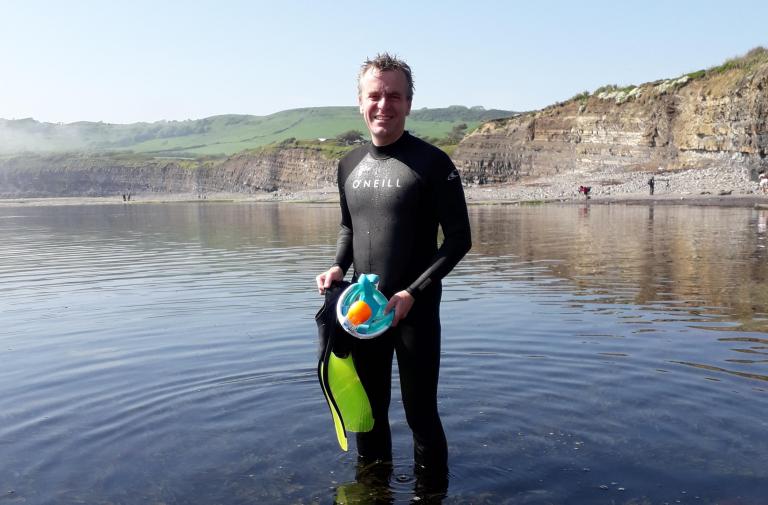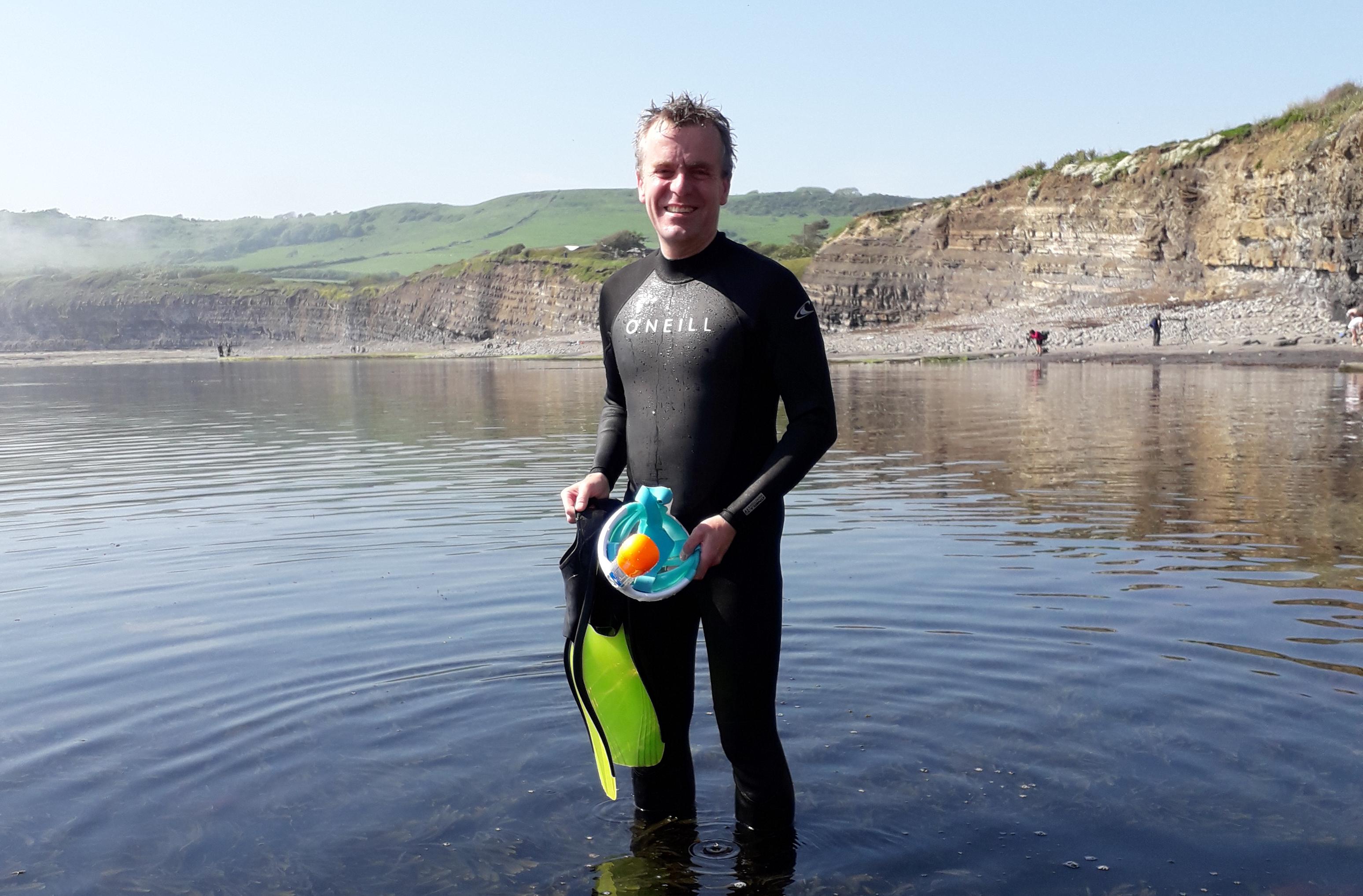 People
PeopleA Life in the day of ... Robert Massey
Find out about the daily life of the RAS Deputy Executive Director.
 People
PeopleFind out about the daily life of the RAS Deputy Executive Director.

Getting some perspective...
Image Credit: R Massey
Find out about the daily life of the RAS Deputy Executive Director.
If I’m coming into the office at Burlington House then I come in on my bike, to get some headspace. People find it hard to see that cycling across London is relaxing but it is for me – one thing you can't do on a bike is read emails or send texts!
My day starts with checking what’s happening, looking for breaking news stories in science and in politics and thinking “Do they relate to us?” I check Society social media accounts to see if we’re tagged in anything. Social media can be terrible but at its best it’s a great tool. People can point you to new things and it's a direct way to engage with the community.
Then it’s on to the priorities for the day. We might be responding to a consultation and trying to understand, say, government industrial strategy, the Space Industry Bill, or Brexit legislation and I have to see how we fit in. Some of what I do is research and getting hold of figures, sometimes in-house, from membership information or surveys. I also send out requests for information to universities, for example. It’s really important for the RAS to get responses from working academics and people in industry. These crystallized bits of feedback from individuals really help me put together the bigger picture, which at the moment is dominated by Brexit and the effects of almost a decade of flat cash in research funding. The potential loss of 30% in research funding from the loss of European Research Council grants is very worrying and there is not a great prospect of replacing that at the moment. And I’m very aware of the worries regarding continuing collaboration with European researchers – and especially, the security of residence of EU nationals when we leave. I feel passionately about that because my wife is German.
We also try to collect information on the research people are doing. We want to understand our community in order to make an effective case to government – that’s why those responses matter, whether it's the head of department or interested individuals. It makes all the difference in the world.
What I do for lunch depends on where I am working. At home I tend to have lunch at my desk, but in the office I try to escape for a bit and sit in St James’ churchyard or meet friends in Chinatown – it’s nice to be central.
There are some fixed points in the calendar. If it is a Council meeting I’ll sit down with officers beforehand and chew over a few things. RAS Council may seem arcane and mysterious but the business you expect from a board of trustees. There will be a few big decisions and because we’re a charity it matters to do it right. That’s why council elections matter, and its why council meetings can last 4 hours or more. I’m not a fan of long meetings but I recognize that we need them. For me they work best when we’re getting to making decisions and we’re candid and focused.
Now and then we meet with MPs, either one to one or in a bigger group such as the Parliamentary Affairs Committee which brings together MPs and science and technology groups and learned societies. To do the job I do you have to have enthusiasm for the sometimes dirty business of politics, that you have to compromise , that language matters and that you have to find common ground with people of different opinions. In my spare time I’ve been a political activist and a local councillor and I find it helps to understand the pressures MPs are under.
If the RAS is to stay relevant we have to keep working on engagement. People are passionate about astronomy and space science, but if you ask what science the government should pay for they bring up treating malaria and climate change… I don't blame them – these things matter – but the big thing for the RAS is to get to the point where the things we do matter to the public too.
And to do that you’ve got to do the outward facing media stuff, you have to like talking to journalists and talking on camera and that what they want is a conversation – once you’ve cracked that you’re fine. It’s about sharing enthusiasm and including one or two key ideas. That's what I encourage people at meetings such as EWASS to do. People can get very worried about the details, but I reassure them that it’s not what the public want to know about – they want the wow factor.
And I think there’s another priority for the RAS; we always have to fight the perception that we are a London organization. I like the fact that we ran RAS200 meetings around the UK and of course the NAM is always elsewhere. It’s vital for the UK to remain engaged with Europe. I also think the RAS has to shrug off the last vestiges of perceived elitism – and we’re a lot better than we were 25 years ago – but we do have to think about bringing in more groups of people rather than fewer. There are a lot of people who could join but don’t think of it. We have to avoid people thinking they’re not good enough. I want to make joining the RAS the default thing to do for every postgraduate student in astronomy. We also need to build on our membership in the geophysics community.
A really good day for me would be one where, say, some of our research fellows or a paper in one of our journals made a big news splash; a day when we get name-checked in Hansard, but also a day where the people working around me are happy as well. A bad day is one when plans go wrong, when I’m planning to distribute something and the email server goes down, or when you’ve arranged to take something big to Council and it wasn’t possible to get the information – and the meeting goes on for ever!
One of the problems with my job is that there are so many things going on in my head it’s quite hard to switch off. That‘s why I find mindless exercise so effective. If you’re going for a run you might trip over a rock so it’s good not to think too hard about anything else. I always like to finish a day by winding down with my family and playing with my daughter, important activities that mean I won’t be thinking about anything else!
Those responses matter, whether it's the head of department or interested individuals. It makes all the difference in the world.
Because we’re a charity it matters to do it right.
To do the job I do you have to have enthusiasm for the sometimes dirty business of politics.
The big thing for the RAS is to get to the point where the things we do matter to the public too.
If you would like to submit an article to A&G Forum then please go here.